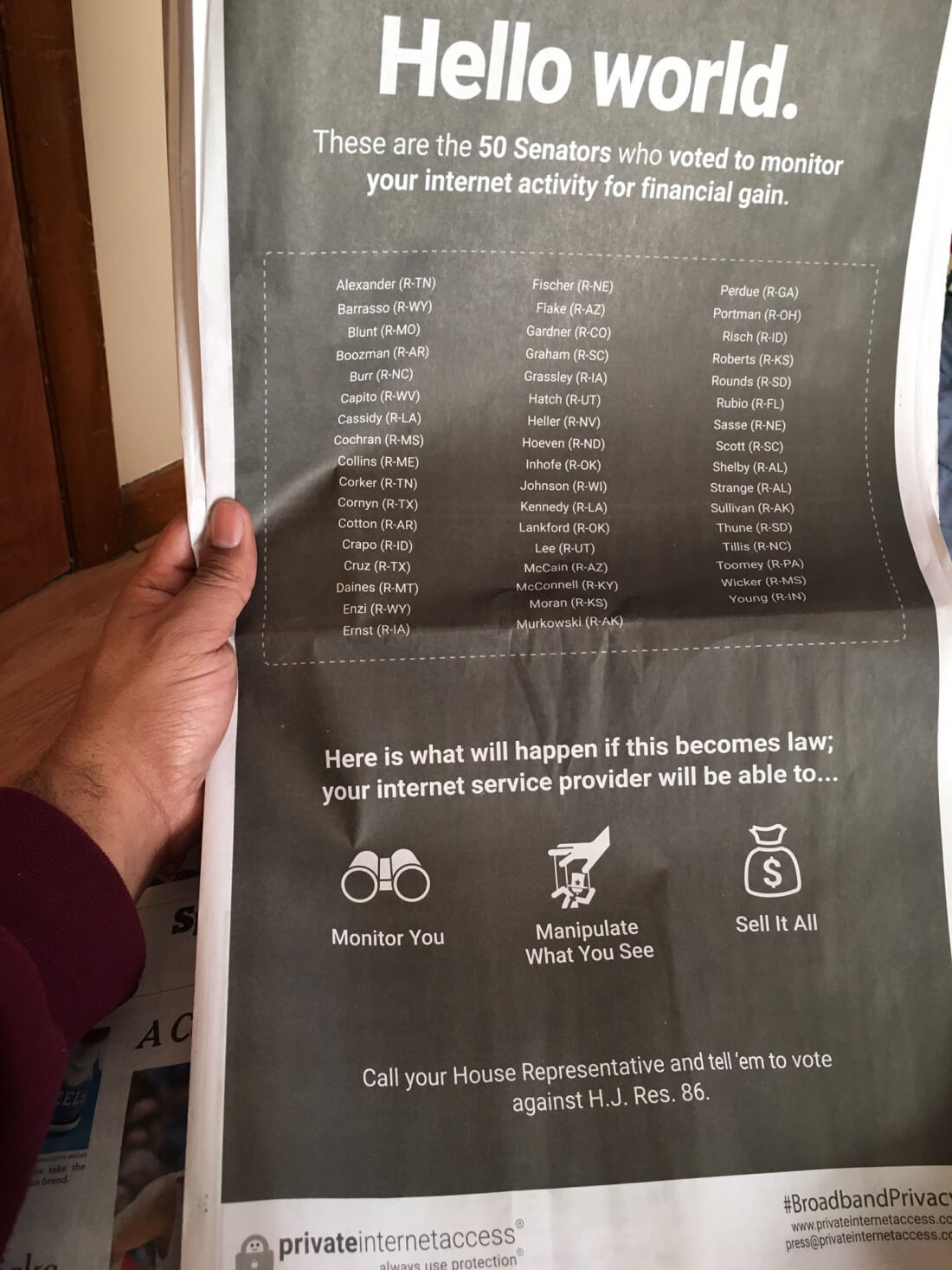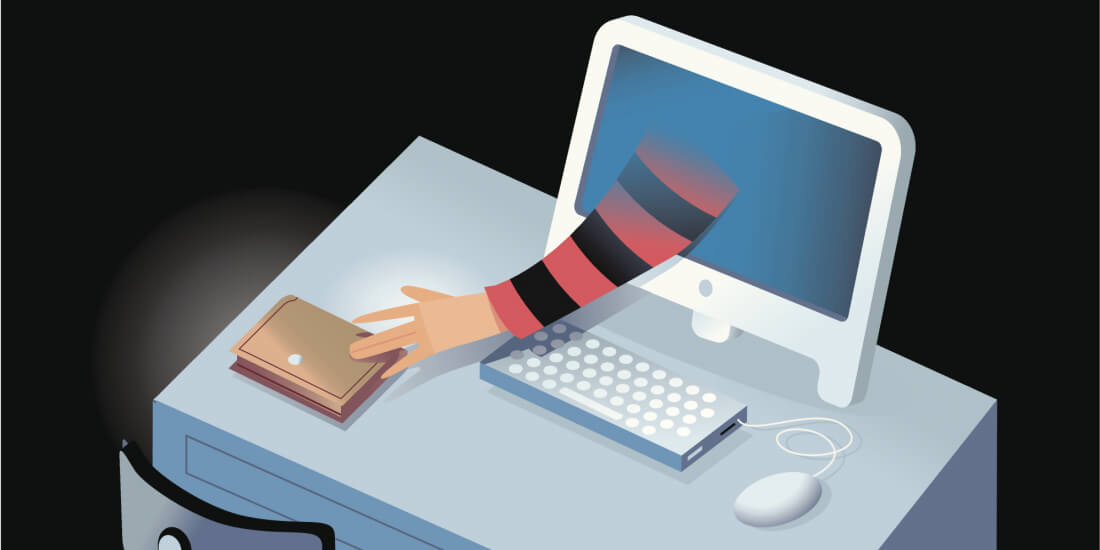Following a narrow win in the Senate last week, the US House of Representatives will vote on Tuesday to repeal the FCC's online privacy rules. The bill was passed in the Senate along a Republican party-line vote. If H. J. Res. 86 passes the House, President Trump is expected to sign it as well.
The bill protects consumers and their online presence. If repealed, ISPs will be able to sell your browsing history and other personal information to whoever they want. Another clause in the repeal states that the FCC will not be able to adopt "substantially similar" rules in the future. To put it simply, ISPs will sell your online information without your permission, you won't be able to stop them, and future legislation to protect you again won't come easy.
While this is a win for large telecom companies thanks to their friends in Congress, it is a major blow to personal rights and privacy advocates. If you find out a website or business is selling your personal information for profit, it's easy for you to not go there again. With ISPs, it's much harder.
The current bill (which is new and not scheduled to be in effect until December 4, 2017) offers the strongest protection to consumers. The FCC would require ISPs to inform customers about what type of data is collected, how it is used, and with whom it is shared. ISPs would have to explicitly obtain a customer's permission to use or share personal information like health data, browsing history, and Social Security numbers. Customers must be able to easily opt-out of any information sharing with the ISP. On the security side, providers must promptly notify customers and law enforcement officials of any breach and take steps to keep data secure.
These all sound like no-brainers, but ISPs have been unhappy with them for years.
These legal changes originate from the FCC's decision to reclassify home and mobile ISPs as common carriers. This allowed the FCC to impose net neutrality rules, but it also stripped the Federal Trade Commission's authority over ISPs, including those about violating customers' privacy.
The laws hold ISPs to more stringent regulations than other web corporations like Google, known as "edge" companies. What isn't easy to understand is how repealing the regulations would benefit anyone other than the ISPs themselves. Google and other edge companies only know your information if you opt to use their services. ISPs on the other hand know everything you do since all of your traffic is directed through them, and depending on where you live, you may not get more than one or two ISPs to choose from.
When voters showed that they didn't want the repeal of the Affordable Care Act, Congress responded and the vote didn't pass. A VPN company recently purchased a full page New York Times ad opposing the bill (see below).
The ETF has a simple page detailing your rights and what would go away if the bill was passed. They, along with Free Press also have forms you can send to your representative to show your support for keeping the current protections.
Editor's Note: The story has been updated to include an important omission. FCC's privacy rules and the current bill that may be repealed is not yet into effect. Years prior consumers were protected to an extent because carriers were still under control of the Federal Trade Commission. For a detailed read on the full effects of the bill, repeal and a little history on how the rules have changed go to this article on Ars Technica.

